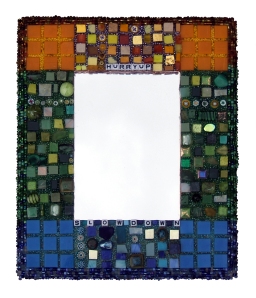Opposites
Am I “trying to do too much?” Am I “being lazy?” Am I “slow?” Am I “too rushed and careless?” Am I “smart?” Am I “stupid?” These are questions that our teenaged selves asked and tried to answer. Most of us struggled with the answers long after we’d become full-fledged adults. The urgency of the questions comes from a place deep inside the human condition. We are all part of something larger- our families- and, yet, we are alone inside ourselves, too. The emotional habits we develop in reading the world of our families are habits that grow and strengthen as we mature. We then apply those same responses to the world outside our families, sometimes to the bewilderment and consternation of others.
Life is confusing from the beginning. Kids regularly get conflicting admonishments from their parents. I suspect that many kids, like I did, brood on the pieces of advice in order to discern what they mean, and turn the meanings into self-labels. Then, they take the labels and turn them into self-image.
The toddler takes many minutes climbing into her car seat once the car door is opened. She must study the bug on the door frame. She must take time to notice that the seat feels lower than it did yesterday. She feels compelled to stop and remark that the teacher said they were going to paint in class today. She needs to talk about how Jonathan had to sit in time-out three times yesterday. She must get into and out of the car seat twice before she is satisfied with the way her pants feel when she sits down in them. And then, it’s time to buckle up. Only the parent knows that it takes 15 minutes to drive to school, another 10 minutes to drop the toddler off, and then another 20 minutes to get to work. She will be late today. So, naturally she says ‘hurry up’ to the toddler.
Another time, the child is dressed for a big family party. She has on her best dress and her new shoes, and someone has taken time to curl her hair and put it up with a ribbon. She feels jubilant! She feels like dancing, which is exactly what she does… dances rapidly away from her parents and out into the hallway, bumping into people in her excitement and haste. A parent, knowing that this is unacceptable behavior in a tight space, reproaches her to ‘slow down’, and she stops, bewildered. “Why in the world would they let me wear such pretty clothes and feel like a princess and then make me act tired and slow?” In her embarrassment, the ecstatic child becomes shy and the parent blurts out another warning, “Give Aunt Jenny a kiss!” And so it goes.
Now, as adults, we must look in the mirror and decide for ourselves whether we need to be more deliberate and thoughtful or be more energetic and productive. We have the option of deciding to be whatever we feel like being, and then live with the consequences of our decision. We must discern whether others are correct in assessing us, or if they are ill-informed and quite mistaken about our character. We must look at our own motivations and see which ones are worth acting on and which are better transformed into something more worthy of our humanity.


You were a very reflective child. That gift of reflection remains with you today, and provides you great depth.